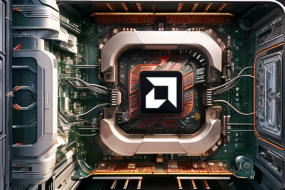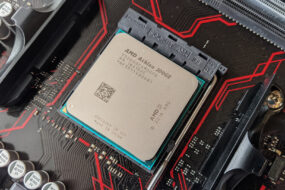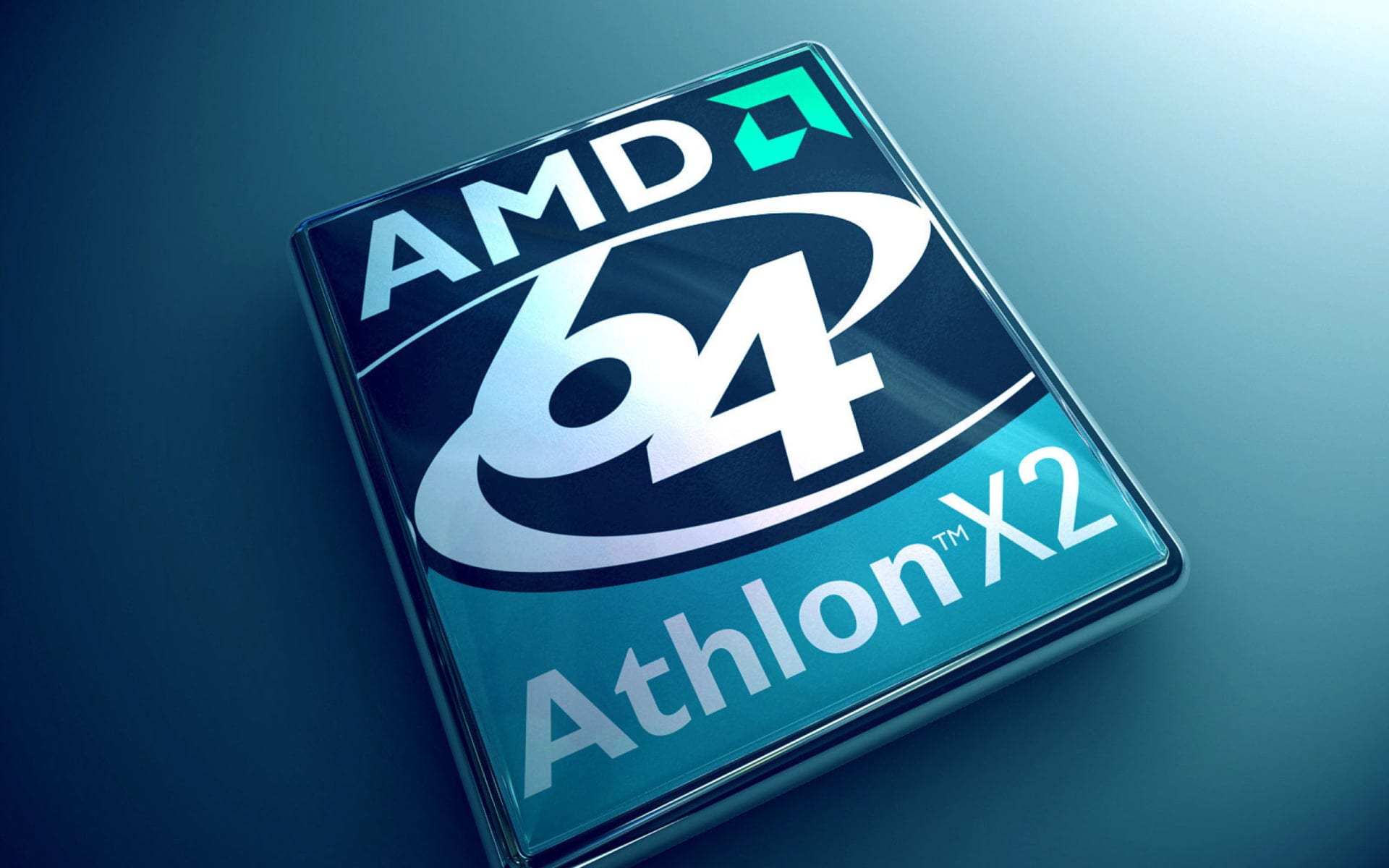
So, we continue to add to the overclocking notes. This time I got my hands on the Athlon 64 X2 5000+ chip. This processor is based on the 65nm Brisbane core, revision G2.
In my last blog post, I already said that AMD’s 65nm core turned out to be weak, to put it mildly, in terms of overclocking. Will Athlon 64 X2 5000+ be able to refute this judgment? There are some prerequisites for this. For example, this CPU has a higher multiplier, which means that the overclocking potential should theoretically be at least no worse than that of Athlon 64 X2 4200+.
Test setup:
- Processor – Athlon 64 X2 5000+
- CPU cooling – Cooler Master Susurro (RR-KCT-T9E1)
- Motherboard – MSI K9N Ultra
- Video card- GeForce 8500GT
- RAM – 2x1GB PQI PC6400 (5-5-5-15)
- HDD – Samsung SP160GB
- Power supply – 400W FSP
Let’s take a look at the screenshot of the CPU-Z utility:
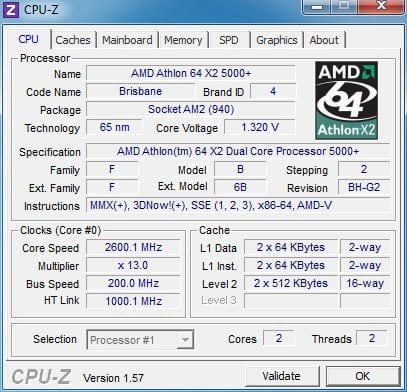
As I said, we have a 65nm Brisbane crystal, revision G2. Athlon 64 X2 5000+ is equipped with 512KB L2 cache per core, the base processor voltage is 1.320V and the stock frequency is 2600MHz.
Overclocking
Let’s start at overclocking. At the base voltage, I could not move even 100 MHz above the base frequency, after which it was decided to raise the voltage to 1.400 volts. However, this practice did not play a role. The stable frequency increased only up to 3000MHz. And only at a voltage of 1.464 volts, I managed to achieve stable operation at a frequency of 3120 MHz:
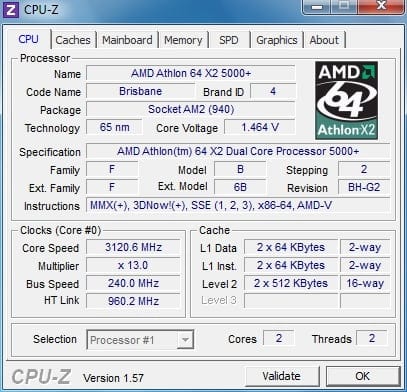
To achieve this result, I had to lower the HyperTransport bus multiplier to 4, and the memory frequency to 667 MHz.
Quite frankly, not impressive. It is necessary to move on, but in which direction? Attempts to conquer 3300 MHz heavily failed. After that, the processor stopped responding to a voltage increase above 1.500V altogether. And the result of overclocking was the frequency of 3250 MHz:
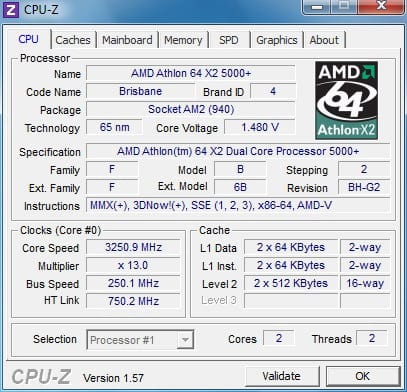
The voltage per core was raised to 1.480V, the HT multiplier was lowered to 3, and the memory frequency to 533MHz.
This is not to say that the received frequency is low or somehow does not suit me. Frankly speaking, not all AMD Athlon 64 X2 processors are capable of conquering even 3200 MHz. However, I expected slightly better results from this specimen.

